
Lviv is the largest city in western Ukraine, and the fifth-largest in Ukraine, with a population of 717,273. It serves as the administrative centre of Lviv Oblast and Lviv Raion, and is one of the main cultural centres of Ukraine. Lviv also hosts the administration of Lviv urban hromada. It was named in honour of Leo, the eldest son of Daniel, King of Ruthenia.
Ukrainian music covers diverse and multiple component elements of the music that is found in the Western and Eastern musical civilization. It also has a very strong indigenous Slavic and Christian uniqueness whose elements were used among the areas that surround modern Ukraine.
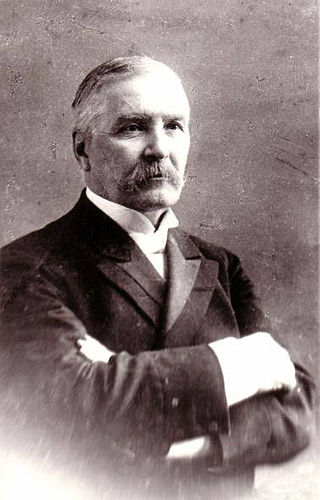
Mykola Vitaliyovych Lysenko was a Ukrainian composer, pianist, conductor and ethnomusicologist of the late Romantic period. In his time he was the central figure of Ukrainian music, with an oeuvre that includes operas, art songs, choral works, orchestral and chamber pieces, and a wide variety of solo piano music. He is often credited with founding a national music tradition during the Ukrainian national revival, in the vein of contemporaries such as Grieg in Norway, The Five in Russia as well as Smetana and Dvořák in what is now the Czech Republic.
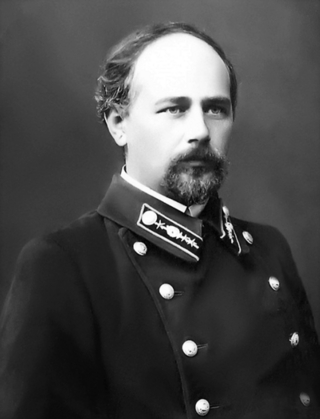
Mykola Dmytrovych Leontovych ; also Leontovich) was a Ukrainian composer, conductor, ethnomusicologist, and teacher. His music was inspired by the Ukrainian composer Mykola Lysenko and the Ukrainian National Music School. Leontovych specialised in a cappella choral music, ranging from original compositions to church music to elaborate arrangements of folk music.
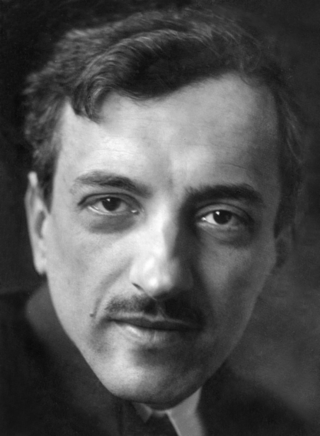
Borys Mykolaiovych Lyatoshynsky ), also known as Boris Nikolayevich Lyatoshinsky, was a Ukrainian composer, conductor, and teacher. A leading member of the new generation of 20th century Ukrainian composers, he was awarded a number of accolades, including the honorary title of People's Artist of the Ukrainian SSR and two Stalin Prizes.
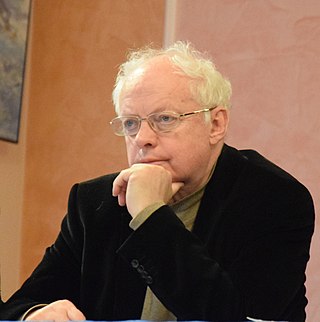
Myroslav Mykhailovych Skoryk was a Ukrainian composer and teacher. His music is contemporary in style and contains stylistic traits from Ukrainian folk music traditions.

Artemy Lukyanovich Vedel, born Artemy Lukyanovich Vedelsky, was a Ukrainian composer of military and liturgical music. He produced works based on Ukrainian folk melodies, and made an important contribution in the music history of Ukraine. Together with Maxim Berezovsky and Dmitry Bortniansky, Vedel is recognised by musicologists as one of the "Golden Three" composers of 18th century Ukrainian classical music, and one of Russia's greatest choral composers.
Ivan Fedorovych Karabyts was a Ukrainian composer and conductor, and a People's Artist of Ukraine.

Ukrainian cinema comprises the art of film and creative movies made within the nation of Ukraine and also by Ukrainian film makers abroad.

Solomiya Amvrosiivna Krushelnytska was a Ukrainian lyric-dramatic soprano, considered to be one of the brightest opera stars of the first half of the 20th century.

Svitlana Azarova is a Ukrainian-Dutch composer of contemporary classical music, originally from the Ukrainian SSR.
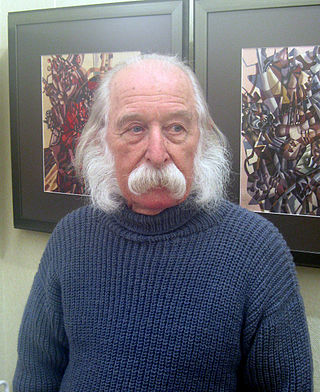
Ivan Stepanovych Marchuk is a contemporary Ukrainian painter, founder of the Pliontanism technique, Honored Artist of Ukraine, laureate of the Shevchenko National Prize, Honorary Citizen of Ternopil and Kyiv.
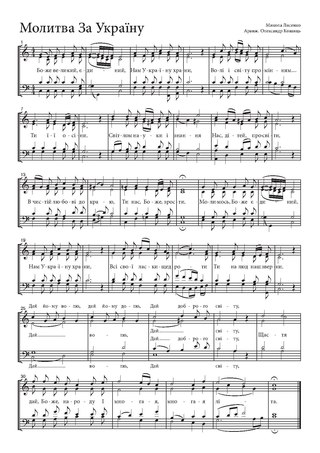
"Prayer for Ukraine" is a patriotic Ukrainian hymn published in 1885, which became a spiritual anthem of Ukraine. The text was written by Oleksandr Konysky, and the music was composed by Mykola Lysenko, first with a children's choir in mind. The song became the regular closing hymn in services of the Ukrainian Greek Catholic Church, the Orthodox Church of Ukraine and other churches. It gained national significance when it was performed by mass choirs during the Ukrainian War of Independence in 1917–1920. The hymn was intended to be an official spiritual anthem of Ukraine. It has closed sessions of oblast councils, and has been performed at major national functions.

Kyiv Music Fest, is an annual international music festival in Kyiv, Ukraine, that profiles modern Ukrainian classical music. The festival aims to promote Ukrainian musicians in the context of world art. It was founded by the Ministry of Culture of Ukraine and the National Union of Composers of Ukraine.

Ruslana Stepanivna Lyzhychko, known mononymously as Ruslana, is a Ukrainian singer, songwriter, dancer, producer, actress, activist, and former politician. She is a World Music Award and Eurovision Song Contest winning recording artist, holding the title of People's Artist of Ukraine. She is also a former MP serving as deputy in the Ukrainian parliament for the Our Ukraine Party. Ruslana was the UNICEF Goodwill Ambassador in Ukraine in 2004–2005. She is recognized as the most successful Ukrainian female solo artist internationally and was included in the top 10 most influential women of 2013 by the Forbes magazine. The U.S. Secretary of State honored her with the International Women of Courage Award in March, 2014. She has been named an honorary citizen of her hometown Lviv and was nominated to receive the title Hero of Ukraine.

Stefania Turkewich-Lukianovych, also spelled Turkevycz and Turkevich, was a Ukrainian composer, pianist, and musicologist. She is recognized as Ukraine's first woman composer.
Pyotr Grigorievich Goncharov was a Russian/soviet composer, conductor and choirmaster.
Ivan Volodymyrovich Kalyuzhnyi is a Ukrainian professional footballer who plays as a central midfielder for Ukrainian Premier League club Oleksandriya.

A national school of opera in Ukraine first emerged during the last third of the 19th century, and was based on the traditions of European theatre and Ukrainian folk music. The first opera by a Ukrainian composer was Maxim Berezovsky's Demofont, based on an Italian libretto, which premiered in 1773. The oldest opera in the Ukrainian musical repertoire, A Zaporozhye Cossack on the Danube by Semen Hulak-Artemovsky, was written in 1863. The composer Mykola Lysenko, the founder of Ukrainian opera, composed a number of works, including Natalka Poltavka, Taras Bulba, Nocturne, and two operas for children, Koza-dereza and Mr Kotsky.
Melody, also known as Melody in A minor, is a musical composition by the Ukrainian composer Myroslav Skoryk. Composed for the 1982 Soviet war film Vysokyy pereval, it has a simple structure comprising an opening theme, short development section, and modified reprise of the original theme. It was originally scored for flute and piano but has since been arranged for many other instrumentations. Melody is Skoryk's most popular work and is frequently performed in concerts, including in response to the Russian invasion of Ukraine.















